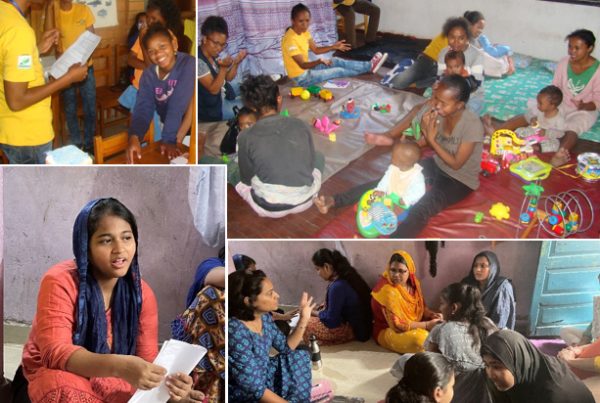Audit of field practices and perspectives for change
INTRODUCTION
Since April 2008, the procedure of FDP is being reviewed step by step to revise and align the practices, methods and procedures with the core ambitions and main goals of the project. At each stage, particular efforts also taken to reinforce the participation and involvement of the stake holders and beneficiaries.
Until April 2009, continuous discussions with NGOs management and coordinators, as well as simultaneous training of field staff, have allowed the implementation of revised procedures, methods and tools for the period of intervention. The “post-intervention” procedure, hereafter called “phase-out procedure” (as per current guidelines), was the last step to be reviewed.
Incidentally, in the last 2 years the priority in monitoring and evaluation could not be given to this stage of the FDP procedure. Absorbed by other project developments, both the NGOs and the technical support team have kept aside the necessary observation and upgrading of the phase-out procedure. By a common understanding, Sneh Deep Janakalyan Foundation (SJF), Vikas Yuva Sanstha (VYS), Swabhimaan and Inter Aide agreed to conduct an audit of the current practices, working methods, procedure, processes and tools, and envisage accordingly the perspectives for improvement and change. All partners intended, by this audit, to find avenues for a better efficiency of the project and an enhanced significance of the post-intervention procedure in FDP.
Assuming that the needs and current situations would be comparable in both NGOs, it was decided to have a procedural audit at Pune level instead of NGO-specific audits and audit reports.
The detailed audit plan was finalised by the auditors considering the requirements discussed with the NGO COs and PMs. The audit was based on one-day observation and interviews intentionally done with all levels of staff (from field worker1 to project manager) to collect the broadest spectrum of opinions possible and a more accurate quality of observation.
An important expectation set for this audit was also to assess the accuracy of current evaluation tools and practices. The pre-assumption was that the levels of sustainability currently reported are unevenly assessed from branch to branch and NGO to NGO




